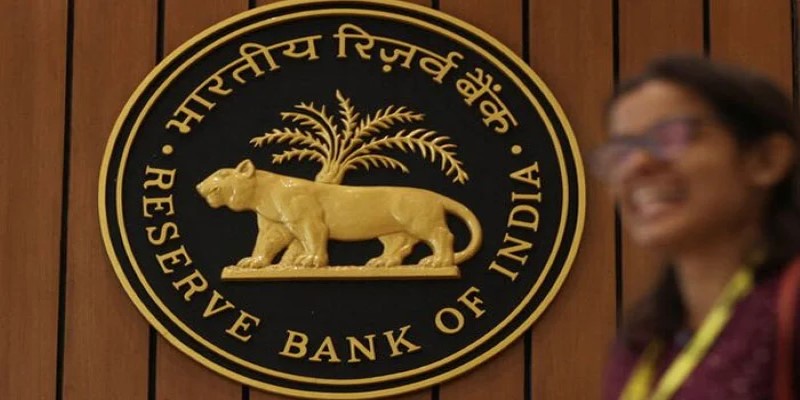Why the Bank for International Settlements Shapes Global Finance
In many ways, the BIS is thought of as the "bank for central banks," but what does that actually mean? Incorporated in 1930, the bank quietly works behind the scenes to orchestrate policies and coordination between all of the world's central banks. The Bank for International Settlements is a central bank forum based in Basel, Switzerland, that collaborates on the world's financial problems and, importantly, is a think tank working on research and analysis of the international monetary system.

With such avowed philosophies, BIS affords people opportunities for dialogue, which makes coordination easier when crises crop up while ensuring a stronger financial ecosystem.
A History of BIS: Journeying Through Time
In 1930, the BIS was established at one of the most turbulent moments in modern economic history- the aftermath of World War I and the onset of the Great Depression. Its original purpose was blandly yet controversial: to be a management vehicle for reparations payments imposed by the Treaty of Versailles on Germany. Still, over time, the institution moved well beyond that narrow scope to become an essential pillar of the international financial system.
The BIS was held to have entertained relationships with the Axis powers during World War II, which threw a cloud of suspicion on its non-alignment. After the war, reforms were undertaken to reinstate global financial cooperation. Thus cooperation, during the middle years of the 20th century, the BIS became the premier forum for managing monetary accords and coordinating the policies of central banks.
Its role expanded further during the 1970s, in the wake of the collapse of the Bretton Woods system—a framework of fixed exchange rates that had dominated global finance since the 1940s. In the decades that followed, the BIS played an essential part in modern monetary policy, especially during financial crises such as the 2008 global recession.
How the BIS Influences the Global Economy?
At its core, the BIS is a unique hybrid—a financial institution with both public and private attributes. This duality allows it to remain independent while also serving as a reliable ally for central banks. But how does the BIS impact the average individual or business?
One of its key functions is to act as a custodian for central banks' reserves, providing secure and efficient management of these funds. The BIS also serves as a lender of last resort, offering liquidity to central banks in times of economic distress. These interventions can prevent financial collapses, indirectly safeguarding jobs, investments, and savings worldwide.
Another significant influence stems from its role in policy coordination. By hosting regular meetings, the BIS facilitates discussions among central banks about interest rates, inflation control, and exchange rates. These policies directly affect the strength of currencies, borrowing costs, and overall economic growth.
Furthermore, the BIS sets global financial standards. Through its Basel Committees, it develops regulatory frameworks like the Basel Accords, which establish guidelines for banking practices and risk management. These standards aim to reduce systemic risks, ensuring that banks remain resilient in the face of financial shocks.
The BIS and the International Monetary System

The relationship between the BIS and the international monetary system is symbiotic. The BIS not only supports the system but also shapes its evolution. In a world of interconnected economies, the institution ensures that monetary policies align across borders, reducing the chances of disruptive economic imbalances.
For instance, during the 2008 financial crisis, the BIS played a pivotal role in fostering coordination among central banks. It facilitated emergency liquidity measures and helped design policies to stabilize the global economy. Such interventions underscored the importance of the BIS as a guardian of financial stability.
The BIS also engages in forward-looking research to tackle emerging challenges. Whether it's studying the implications of digital currencies or addressing the risks posed by climate change, the BIS remains at the forefront of discussions that shape the future of finance.
The Role of the BIS in Emerging Financial Technologies

In recent years, the financial world has been undergoing a seismic shift, with innovations like digital central bank currencies (CBDCs) and fintech reshaping how transactions are conducted. The BIS has taken an active role in researching and guiding the development of these technologies.
For example, the BIS actively supports central banks in designing and testing CBDCs. Through its Innovation Hub, the BIS fosters collaboration among nations to ensure that these technologies are implemented in a way that promotes financial stability while addressing challenges such as cybersecurity and cross-border compatibility.
Through its initiatives, the BIS not only bridges the gap between traditional banking systems and modern technology but also addresses critical ethical and operational questions. Issues such as data privacy, the digital divide, and the potential misuse of technology in finance are central to its agenda, ensuring a balanced and inclusive financial future.
Conclusion
The Bank for International Settlements might operate away from the public eye, but its influence on the global economy is profound. From its origins as a modest institution managing post-war reparations to its current role as the linchpin of the international monetary system, the BIS has continually adapted to meet the challenges of an evolving world. Its work touches every aspect of modern finance, whether through stabilizing monetary systems, facilitating cooperation among central banks, or setting regulatory standards. While its impact might not always be visible to everyday individuals, the BIS ensures that the global financial architecture remains resilient and efficient. Stay tuned for more!











